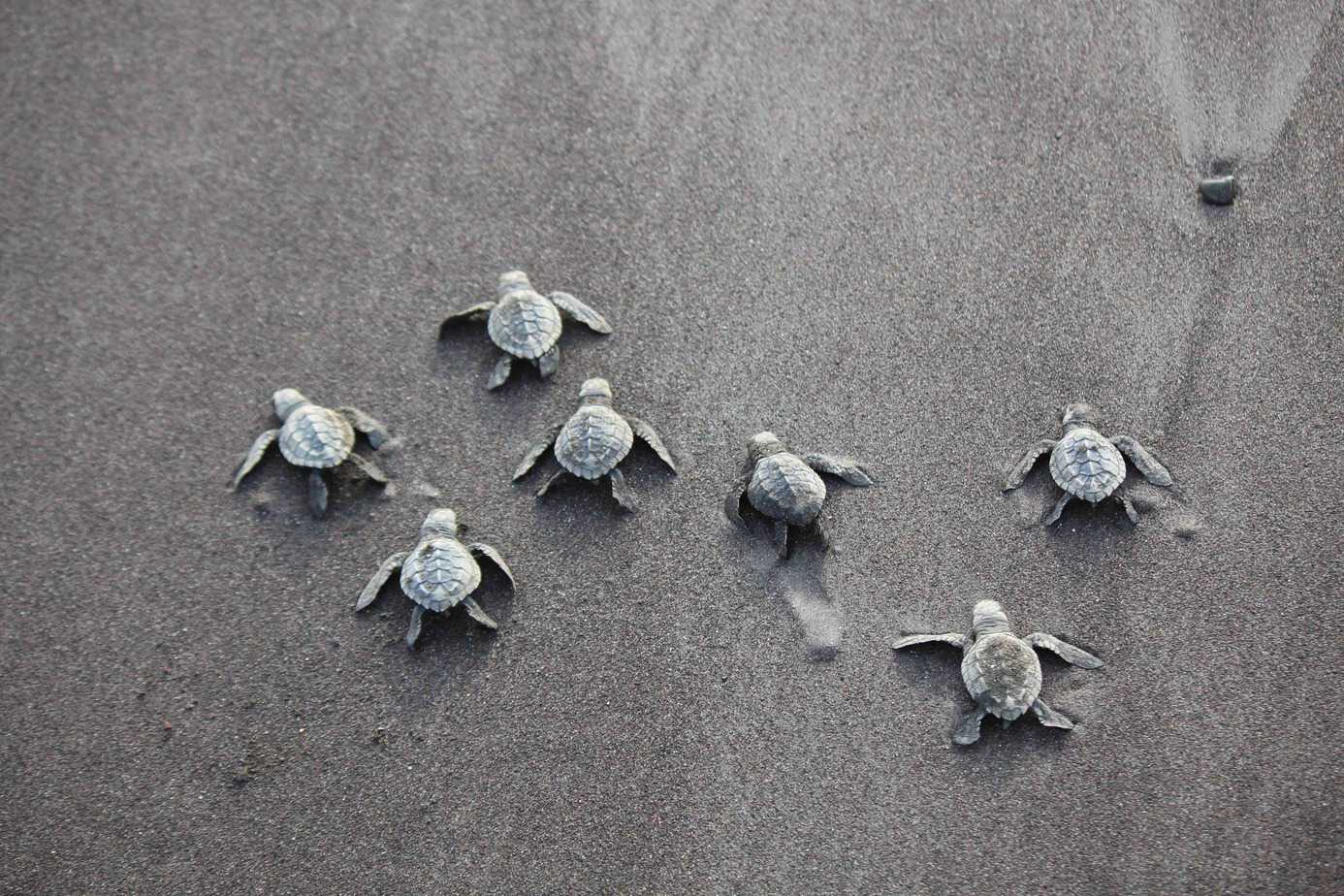Nearly five hundred endangered olive ridley sea turtle hatchlings have been released into the sea by Nicaraguan environmental officials at a Pacific beach.
The release of the tiny turtles took place on Tuesday at Chacocente Beach, part of the Río Escalante-Chacocente Wildlife Refuge, an area encompassing over 4,600 hectares of tropical dry forest.
The released hatchlings were born in nurseries at this beach, located 82 kilometers south of Managua, in the agricultural municipality of Santa Teresa. During August, 2,000 specimens were released at Chacocente.
Thousands of eggs were laid in nests dug by the turtles themselves on the beach. The nests span a stretch of about 1,500 meters in length. Additional eggs found on the sand are rescued by park rangers and taken to 250 nurseries until they are ready for release.
The incubation period for olive ridley turtle eggs ranges between 45 to 50 days. The hatchlings are the result of the massive arrivals of turtles that come to nest at Chacocente each year.
Local environmental officials estimate that around 50,000 turtles arrive annually to lay their eggs in the sand on this beach. The “nesting season” runs from July to January of the following year.
The released turtles are expected to return in 15 to 20 years to the same beach where they were born to nest, thus completing their biological cycle, according to reserve officials. Olive ridley turtles can grow up to 70 centimeters in length and weigh about 40 kilograms.
Primarily, it is the olive ridley turtles that arrive at Chacocente Beach—a species declared endangered in 2006 by the International Union for Conservation of Nature, making their hunting indefinitely prohibited.
However, other threatened species also arrive in smaller numbers, such as the hawksbill (Eretmochelys imbricata), leatherback (Dermochelys coriacea), and Kemp’s ridley (Lepidochelys kempii) turtles.
According to the Ministry of the Environment and Natural Resources, the massive turtle nesting events in Nicaragua occur only on two beaches: Chacocente and La Flor, the latter located further south.
In Central America, there are also other locations where sea turtles arrive en masse to nest, including sites in Costa Rica and Panama.






